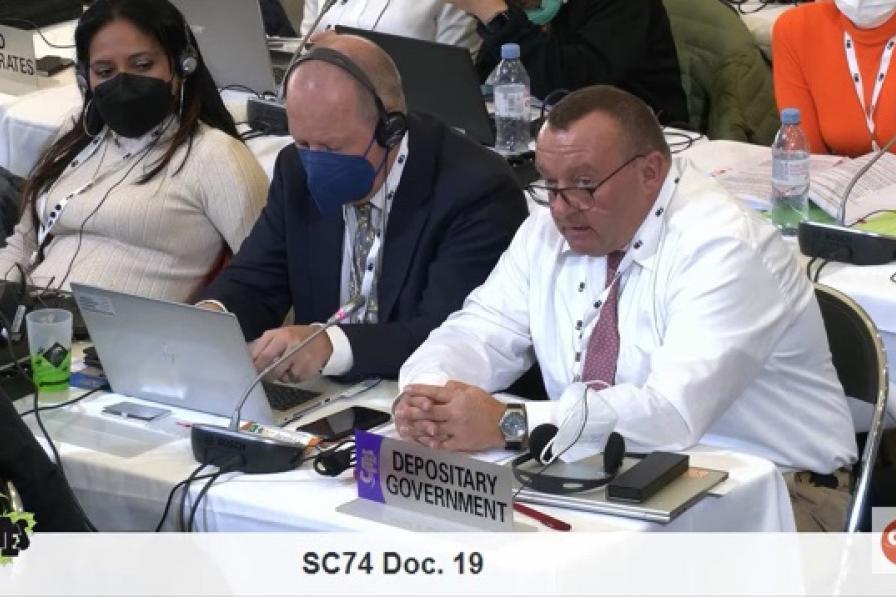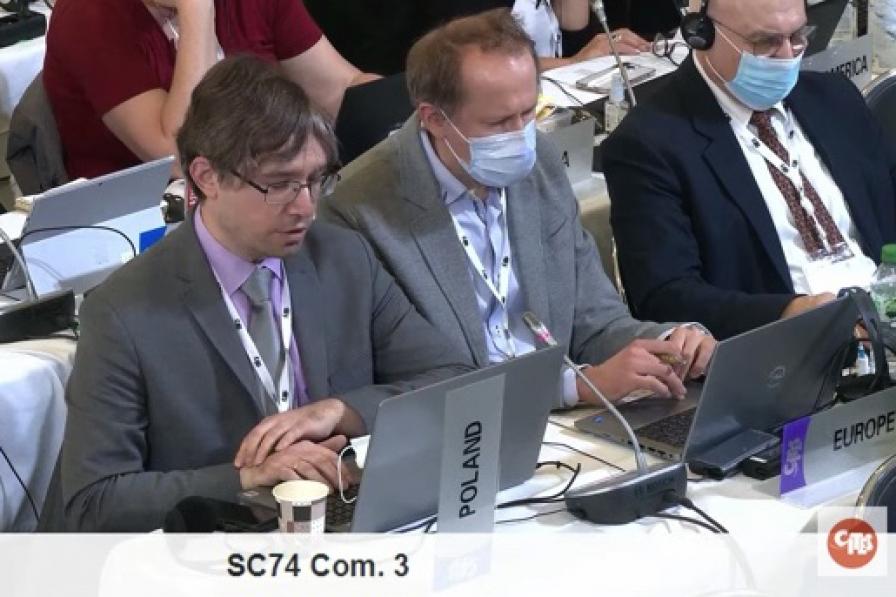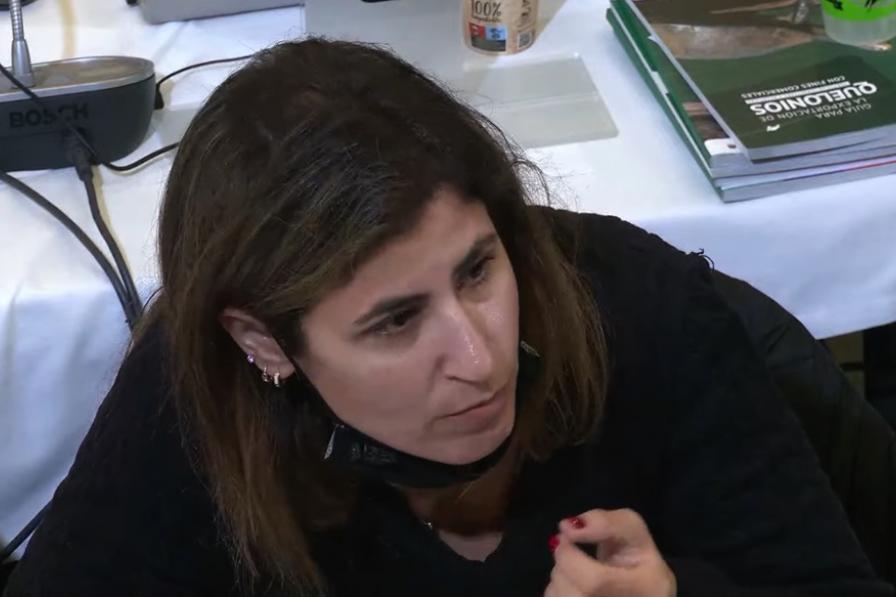Participants to the 74th meeting of the Standing Committee of the Convention on International Trade in Endangered Species of Wild Fauna and Flora (CITES SC74), led by the efficient SC Chair Carolina Caceres, managed the impossible and completed their work: 89 agenda items with many sub-items, paving the way to the 19th meeting of the Conference of Parties (CoP19).
Delegates discussed “with passion” language strategy issues and costs associated with three different options, from complete integration of the six UN languages into the Convention to only translating priority documents in those languages to facilitate the daily implementation work of relevant to national authorities. Eventually they settled on the proposal by the CITES Finance and Budget Subcommittee to request the Secretariat to conduct a survey on how other biodiversity multilateral environmental agreements and natural resources management bodies are handling language services for non-working languages and to present new options.
While some species and issues draw attention and funding, that is not true for all imperiled CITES species. For example, the helmeted hornbill, a critically endangered species on the IUCN Red List, is impacted by illegal wildlife trade. The CITES Secretariat, in introducing the agenda item on the helmeted hornbill lamented a lack of resources to advance work. Thanks to EU support, however, a Regional Investigative and Analytical Case Management on illegal trade in the bird is planned to be held later in 2022.
Discussions unraveled with the consideration of in-session documents, including the revised terms of reference for the Big Cats Task Force, tasked with the mandate to share information about techniques for identifying big cat specimens in trade, consider developing new and harmonizing existing approaches for better roll out and use of these techniques and identify needs and knowledge gaps; as well as generate improved understanding of the role of legal trade in big cat specimens on combating poaching of and illegal trade in big cat species.
Delegates also came to a consensus on how to address the ongoing and pervasive illegal trade in Pterocarpus erinaceus as they agreed to Poland’s proposal to start compliance procedures, against countries not deemed to provide a “satisfactory” response or otherwise failing to voluntarily publish a zero quota.
In closing SC74, delegates thanked host country France, the Secretariat, technical wizards for online coverage, interpreters, and especially Chair Caceres for her “usual combination of efficiency and grace and, on this occasion, with more than usual stamina.” They concurred strong foundations had been laid for a successful CoP19. In noting they had reached the end of the race, Chair Caceres gaveled the meeting to a close at 6:41 pm.
To receive free coverage of global environmental events delivered to your inbox, subscribe to the ENB Update newsletter.




